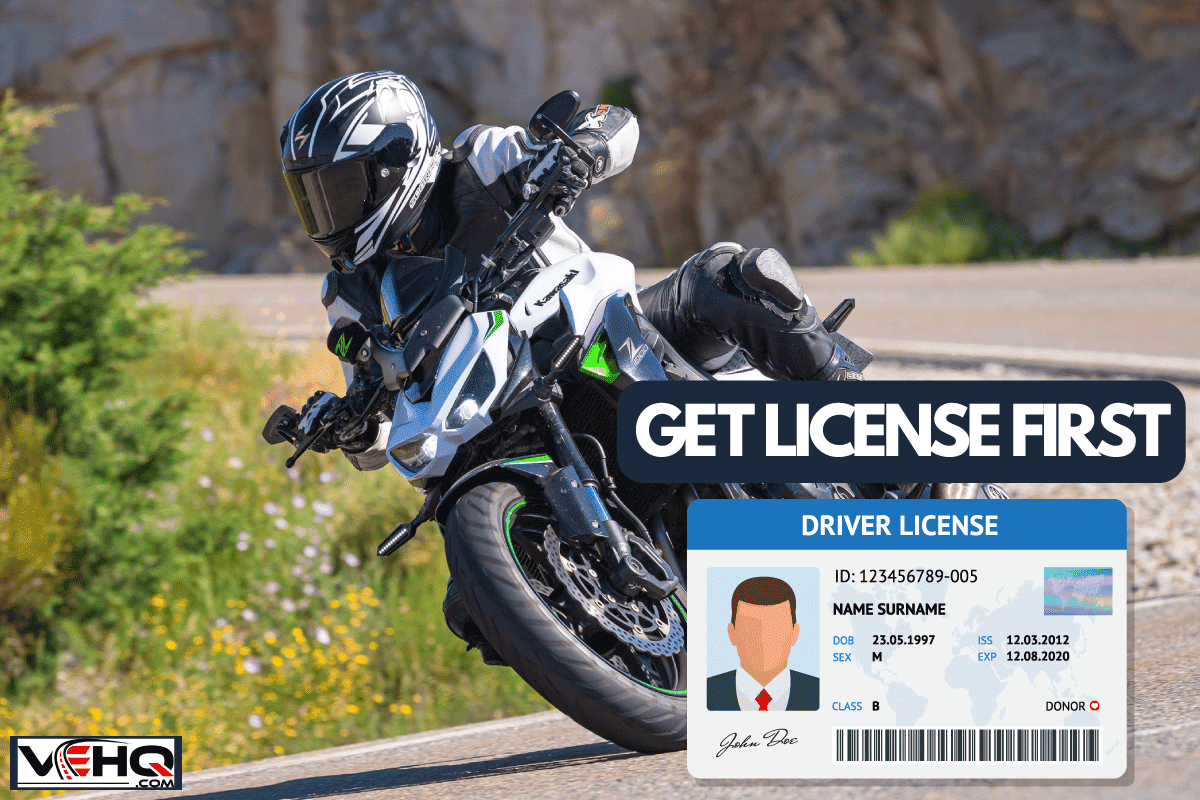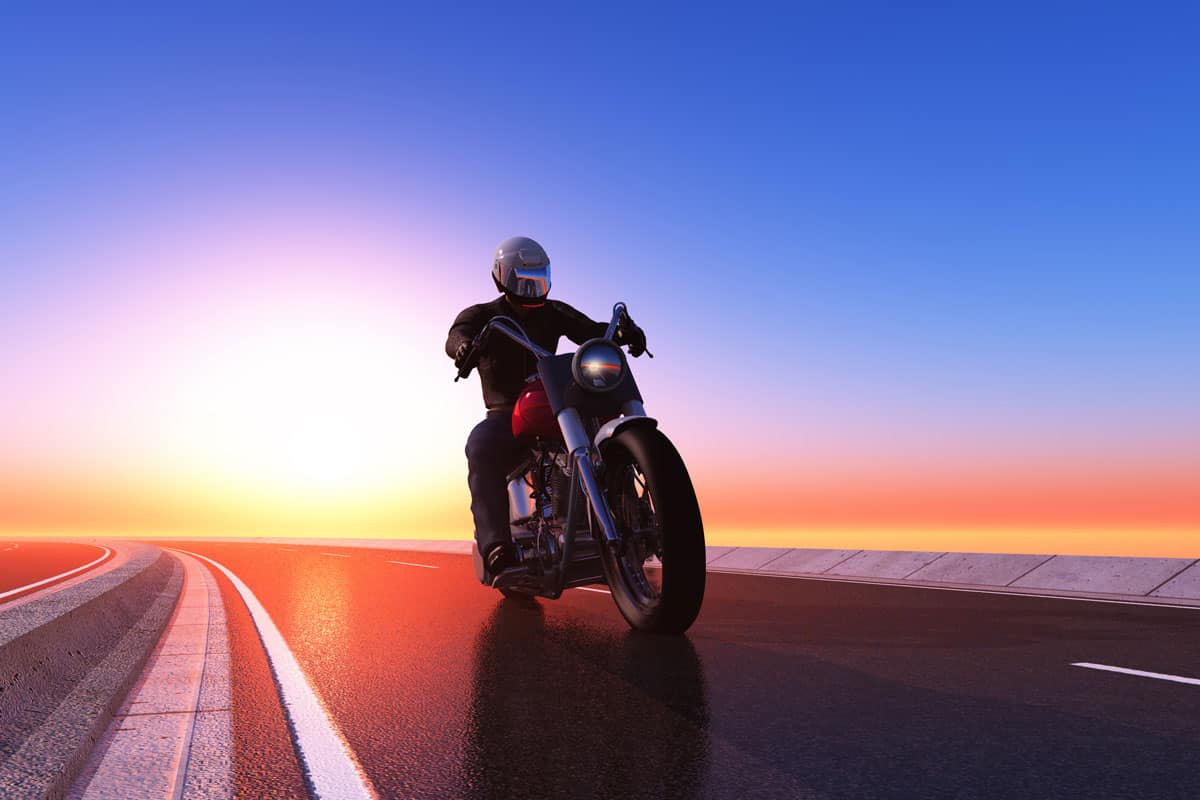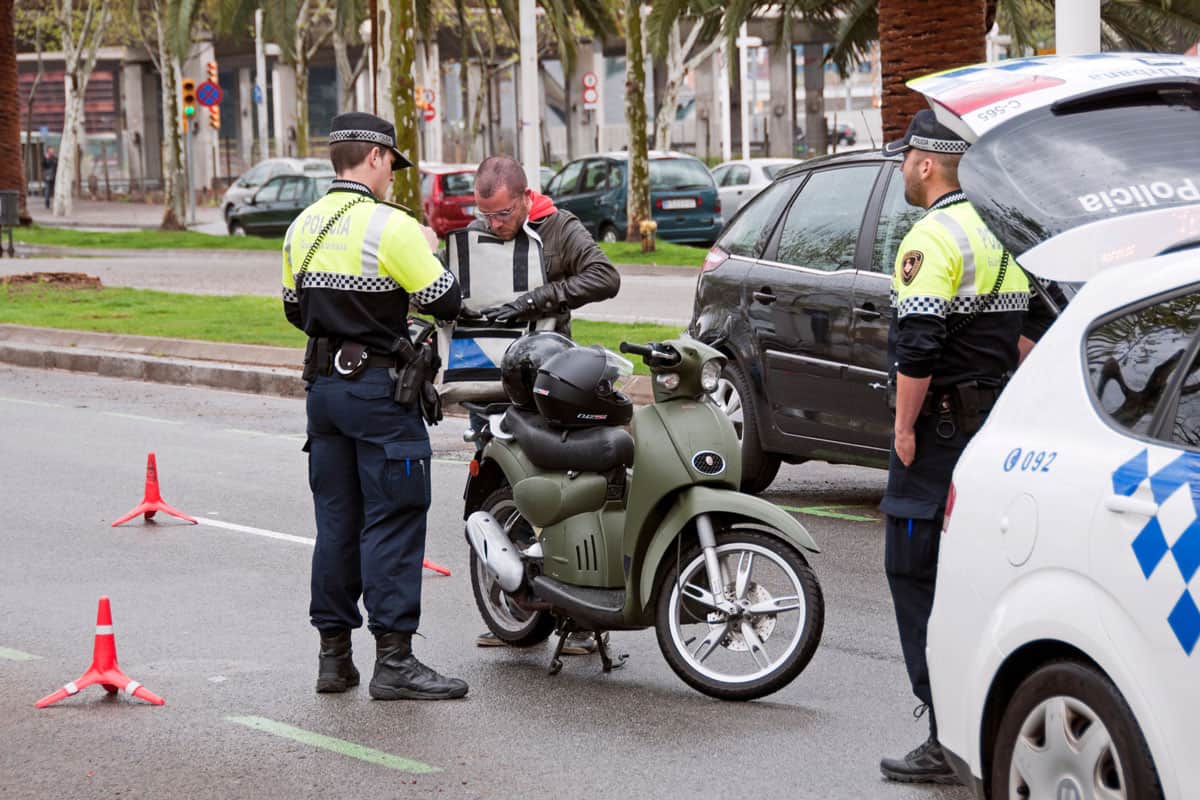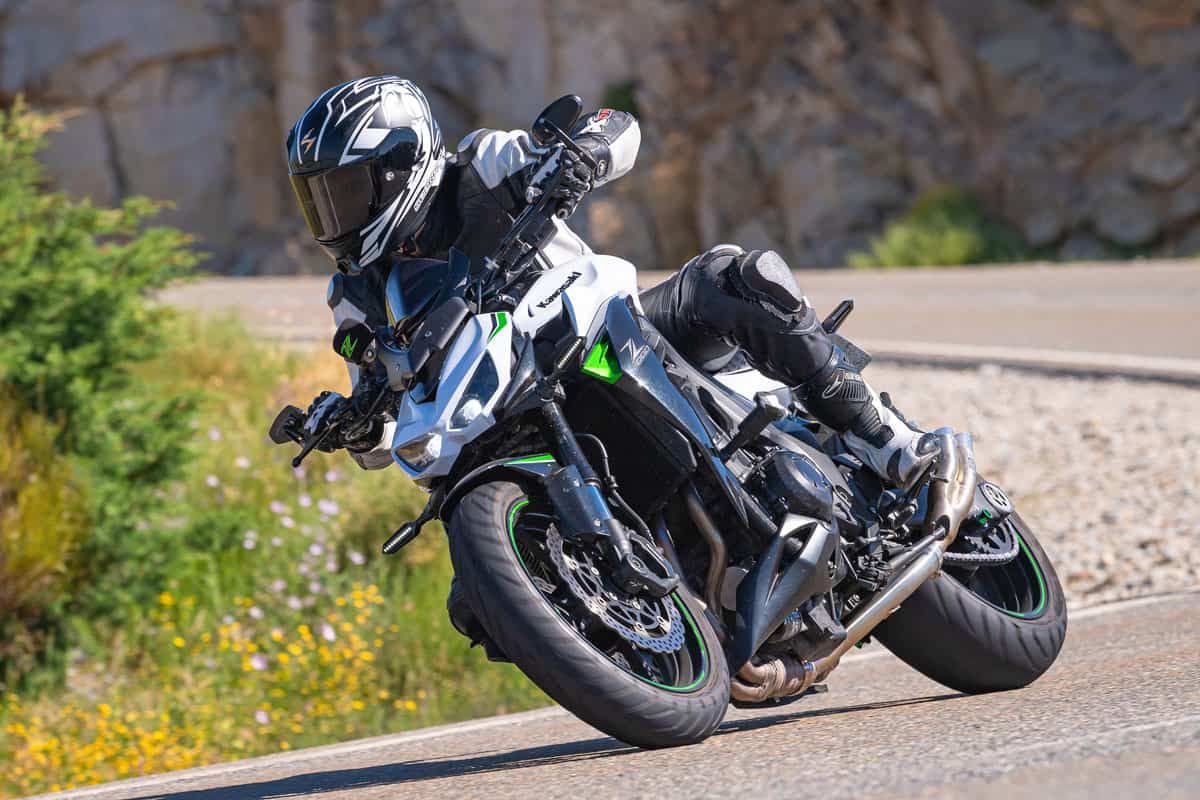Figuring out the rules of the road can feel endless at times. Do you want to get a motorcycle license but don't already have a standard driver's license? Do you need a driver's license to obtain one for a motorcycle? Luckily, we've done extensive research and have these answers to share. Let's discuss.
Generally, you will need to get your driver's license before applying for a motorcycle license. Considering that a basic driving certification allows you to operate non-commercial vehicles legally, this is the first step in the process.
Furthermore, the motorcycle licensing test is often more difficult than the driver's version, so that's another thing to consider.
As we begin, we will cover all things motorcycle licenses and discuss how you can get one. Whether you're new to the two-wheel life or have a bike waiting in your garage, we're here to offer some help. With that said, let's get right into this post and figure it out!

Is A Motorcycle License Different Than A Driver's License?
Yes, a motorcycle license is different from a typical driver's license. Generally, you will need an additional permit or license to legally ride a motorcycle, including extra testing and fees.
Like a driver's license, you will start with a motorcycle permit. That will allow you to practice riding on your bike if you're under 18 in most US states.
Additionally, ADOT claims that you must be at least 16 to apply for a motorcycle permit, which you must have for six months before actual licensing.
So this is very similar to a driver's license. The permit process works slightly differently because you can't always fit a parent or licensed guardian on a motorcycle.
As we mentioned, you will need to have a prior driver's license before operating a motorcycle, which allows you to skip the parent/guardian passenger when you get your permit or endorsement.
However, not all states have the same process for this secondary license, so check with your local DMV before taking any tests or purchasing any study guides.

Do I Need A Driver's License To Get A Motorcycle License?
Yes. You need to obtain a standard driver's license before applying for a secondary motorcycle license. As we covered, this can happen in various ways depending on your state, so everyone is different.
You will typically be able to apply for and receive a motorcycle license once your driver's license is given to you. So if you still have a driver's permit, you need to finish your training, pass your test, and then apply for a motorcycle certification.
Furthermore, you may see this license referred to as a 'motorcycle endorsement,' which is added to your current driver's license. Again, that doesn't mean getting a motorcycle license will always follow this exact process, so be mindful of that.
You'll also need to take a test and do plenty of studying for this additional license, so many people give themselves a break between their driver's and motorcycle courses.
Can I Buy A Motorcycle Without A License?

Yes, it is possible to purchase a motorcycle without a license. Considering that most private dealers don't require a license to sell a bike, you shouldn't run into any issues here.
For example, it's completely legal to buy a motorcycle without a license in California, although you can't drive it until you finish your testing.
The same goes for countless states, so if you collect motorcycles but don't have a license or permit yet, you can legally have them (just not operate them).
However, that's not to say a dealer won't ask to see proof of insurance or other identification. If you run into questioning, you can try showing them your standard driver's license and the insurance you have.
If you don't have insurance for a vehicle, that is when you may want to wait until you have your motorcycle permit or full license.
Do I Need Insurance For A Motorcycle?
Yes, if you plan on driving your motorcycle, you will need to ensure it. Like a regular car, driving a motorcycle without insurance is a crime.
Let's say you take your bike out for a joy ride and slam into the back of a car. Some states don't require the other person's insurance to help you, even if you become hurt, considering you aren't insured.
The same goes if the roles are reversed, and you are the one that gets hit. Not only are your medical bills solely up to you, but also the other person's.
Even if the vehicle you hit has insurance, they will generally cover their policyholder: but will come after you for that money. You can also be sued in civil and criminal court for this, so make sure to have a policy for any vehicle/motorcycle you operate.
What State Has The Easiest Motorcycle License Test?

Of all 50 US states, Nevada and Alabama seem to have the easiest motorcycle licensing processes. Alabama has one of the easiest driving tests in the nation, being only one written test for drivers 16 and older.
From there, you can apply for a motorcycle permit, take another test, and you're done. On the other hand, Nevada has a few different ways to get a motorcycle license.
The first option is to get a standard driver's license, apply for a motorcycle permit, take your tests, and become a fully licensed motorcycle driver.
The second option is to take a DMV-approved motorcycle course, show the DMV your certificate, and get your license. Of the two, the second course is easier, so that's what we recommend.
Arizona also has a fairly easy motorcycle test, among other states. The main thing here is to get your driver's license prior, which should speed up this process.
Which State Has The Hardest One?
Expect a difficult motorcycle and driver's license test if you live in Washington. Although the state has some of the worst reported drivers, Washington's road tests are infamously challenging.
In addition to the already tricky driving portion of your licensing, motorcycle amendments/permits require extensive safety courses.
Of course, that isn't necessarily a bad thing, considering you will learn more ways to keep yourself and other drivers around you out of harm's way.
You also have to think about your skill set as a driver. Operating a motorcycle isn't always as easy as it looks, so your testing/practice may take longer.
In general, it's best to study hard, practice extensively, and follow all of the proper steps before going out into the open road.
Do Motorcycle Licenses Expire?
Yes, motorcycle licenses will expire, although this varies by state. Usually, you will need to renew a motorcycle license annually, or it will become invalid.
Luckily, this is usually online, so you don't have to take a trip to your local DMV. For example, riders in Minnesota need to re-register their motorcycles every 12 months.
New residents to the state have 60 days to register their bikes and licenses, so make sure to do that.
On the other hand, Florida doesn't require you to renew a motorcycle license. Instead, the amendment stays on your license forever, as long as you have your DMV add it to your driver's license within one year of passing the course.
Additionally, Texas has a renewal period every 24 months, so this is different by state. We recommend asking your instructor or DMV about the renewal timeline for your license to avoid it expiring.
What Happens If You Get Pulled Over Without A Motorcycle License?

Expect a hefty fine if you decide to drive a motorcycle with an expired license (or without one). Typically, if you get pulled over and don't have a permit or license to ride a motorcycle, the officer will fine you and possibly charge you with a misdemeanor.
The fine will be between $100 and $1,000 most often, so this can be an expensive mistake. Of course, this won't usually happen if your license is recently out of date, but never say never.
Let's say you drive with your regular license and get pulled over. Not only is this a crime, but you can have your normal license taken away.
If you don't have a motorcycle amendment, permit, or full license on you, don't get on the road. If it's an emergency and you can't find your license, find a photo of it, which you can show a police officer.
Again, that can be hit or miss, but it might save you from a criminal charge.
To Wrap Everything Up

Whether you have a motorcycle waiting in the garage or want to buy one, it's crucial to have a license. We found that you need to have a driver's license before applying for a motorcycle permit.
From there, you need to take extensive safety courses and pass an additional motorcycle test. Although this varies by state, expect to study hard and pay an extra fee. You may even need to ride with a permit until you meet specific requirements, so everyone is different.
Regardless, check with your local DMV about license requirements and renewal periods, and stay safe on the road!
Made it to the end? Check out these helpful related driving posts below!
How Long Does It Take To Get A Driver's License?
